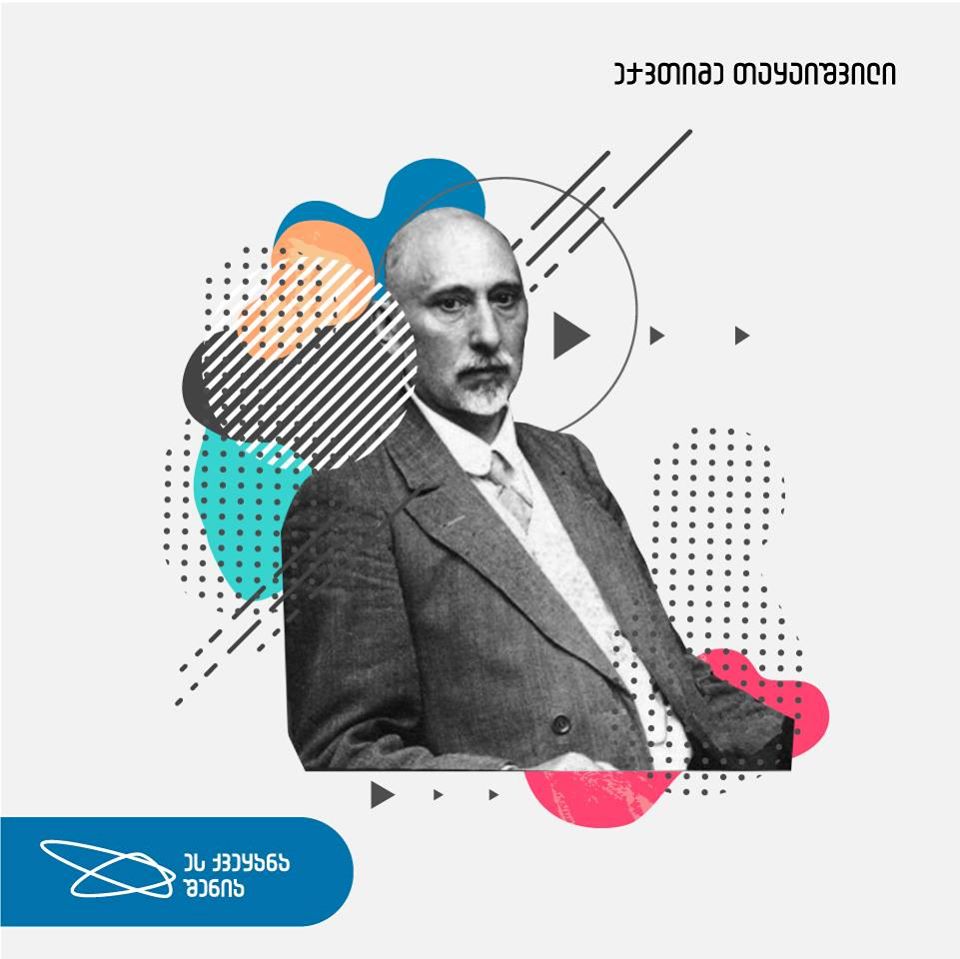CSOs in the Eyes of Media
Popular





CSO webportal has interviewed the Editor of "Batumelebi" newspaper Eter Turadze.
Interviewed by Lali Shalvashvili
How would you assess the activities of the civil society organizations (CSOs)? Mass media is somewhat close to the sector, and therefore the assessment of media representative is especially interesting … How is the sector viewed from outside?
Eter Turadze – I will judge by a concrete example how does a specific media organization and me as one journalist see the role of this sector and what is our attitude. I believe the non-governmental sector is a significant support for us - journalists, and especially when we need the opinions of competent persons throughout our activities. Unlike other experts, they are impartial, informed and they do not require explanations on the importance of assessing this or that issue or comment.
As for our concrete media outlet, we enjoy even a broader support. For instance, the Georgian Young Lawyers' Association has been providing legal aid and consultations and defending us in courts over years, when we could not even afford paying fees or retaining a lawyer. This cooperation still continues. Thus, for me as media representative and journalist this sector is important. Of course I see its importance in the society's development from the other perspective as well, and in this respect the sector is crucial, also requiring in my opinion further development.
You mentioned that the sector also requires development, what did you mean? And you have discussed current relations between concrete media outlets and the sector mainly in a positive context, let's discuss problems that you see in the sector's activities, and how should they develop …
Eter Turadze – One of the challenges that the civil sector will face is a certain trend, according to which the sector is criticized more recently than before. To be more precise, it becomes active periodically. Again just recently we had another regional example in Batumi - there was a huge wave of critique against NGO sector, and media has actively worked on this topic. A group was declared to be traitors, and a poem was written on the topic titled "Girls and Boys from a Non-Governmental Sector", in which they were called aliens and persons who sold their souls for money to fight against national interests, traditions, etc. The problem lies in a fact that the sector has failed to bring its real objectives and purpose to the society, it is not fully open and there is a certain closed circle that knows what the sector is about. Hence, link between the sector and the society is not strong but weak. There were cases in this region when the respondents thought this or that politician was representing NGO sector. There are persons from the sector known to the public, but the organizations where they work or which they head are less known. I believe this is the sector's problem and they will need more efforts to let more people know about their objectives.
What is the reason behind the sector's failure to convey its objectives to the population?
Eter Turadze – There could be a lot of reasons, for instance lack of human resources. To judge once again by regional examples, unlike large organizations situation in regional organizations is different in terms of resources. There are organizations here with a small staff.
Do you mean Adjara-based organizations or the Batumi organizations?
Eter Turadze – NGO sector is rather scarce beyond Batumi and therefore I mean Adjara when I mention scarce resources. Most probably they lack resources - both financial and human, and perhaps their obligations related to specific activities are so large-scale and complex that they no longer manage to inform the public about their objectives. They have concrete target groups to work with but they cannot manage to work with other persons and groups. I know they work very hard and have a loaded work schedule, but nevertheless they are less known publically. On the other hand, another reason may be that we are a post-Soviet state and the notion of NGO sector is still new for the society. 20 years may not be enough for people to understand well the importance of this or that sector, and perhaps this is a problem of general education as well.
So you think this can be a two-way problem: for the society as well as for the sector?
Eter Turadze – I see it this way. Yet, I believe NGO sector should make the first step to overcome the barrier lying between the public and the sector.
In view of regional examples, which trends have you observed – has number of CSOs grown or declined, have they become more active or to the contrary …
Eter Turadze – Statistically there are many CSOs, but there are 7-8 organizations in the region that are active and engaged in processes. Several organizations have emerged nowadays that are active, and one or two youth organizations were set up, but so far their activities are limited to organization's mission statements only. Organizations working years ago are still functioning, but I cannot say the quality of their work has improved or deteriorated. They stand on the same level as during the previous authorities. However, compared to the period of Aslan Abashidze, representation of this sector in the region has improved considerably.
You have mentioned that two decades are not enough for the population to well comprehend the notion of the sector, and that the sector works with concrete groups within the project frameworks. Don't people that they work with have information on the sector? Why don't they themselves set up CSOs? Isn't this one way or the means for launching an advocacy or monitoring campaign and doing this much better than just one person?
Eter Turadze – People who have benefited from the good called NGO sector may have a desire to help others, but this requires relevant knowledge, experience, and the fund-raising skills.
By the way, during the recent wave against NGO sector we wanted to inform readers about the sector and interviewed one of the first representatives of NGO sector Davit Zurabishvili, who had mentioned that people should have certain skills to participate in the activities of NGO sector. One can learn this. The sole desire is not enough, i.e. certain skills are required. Either one learns this in some organizations as a volunteer and starts forming-developing, or one is very gifted and manages to do everything independently.
In case of the region, people who have benefited from the sector's services are somewhat dispirited in various ways. Let's take the Democracy Institute for instance, which works on the rights of minor inmates. It would be extremely difficult for these beneficiaries to get rid of their problems so as to start thinking about or actually helping others. It's the same in case of GYLA - there is a queue of these people whenever you go there. They would hire private attorneys should they have finances. Therefore, when a person is loaded with problems, it is difficult to start thinking of others. Yet, the issue of public activity may be a part of our country's culture, and I believe we lack this very culture. Further, NGO sector is funded mainly by foreign donor organizations, and I don't remember a single case of donating money to a CSO, or supporting certain activities per se. This is a matter of culture probably, which also requires enhancement.
Do you think NGO sector has impact on the society? Relations between the public and the sector are not so firm, and on the other hand the opinions of the sector reach the society via media. How could one assess all of this?
Eter Turadze – I believe it has impact on the society, because persons employed in this sector still manage to create a public opinion. A public opinion in our and other countries is formed probably by concrete individuals, and especially in the countries like ours with the developing democracy. That is why I think that people working in the sector create public opinion taken into account more or less by the authorities, which is the chief generator of public opinion but which cannot fully ignore the opinions of this sector. For instance, Bidzina Ivanishvili has reacted to the critical assessments of the NGO sector. Another question is whether the politicians take into account the sector's opinions in their activities. I think the sector's representatives create public opinion, they often appear in media. We all know that media largely contributes to the formation of a public opinion, and frequent appearance in media results in popularity and thus expansion of these opinions among the public, yet sometimes accepted and sometimes not. Our society is not the society that controls the authorities or forms the public opinion. It is either governed by or accepting the public opinions formed by certain groups. And I believe the NGO sector is one of such segments.
You have just mentioned the relations between the authorities and NGO sector. Do you believe there are any changes in these relations?
Eter Turadze – We can judge this issue by concrete examples. We all remember the election of the Public Defender, when the NGO sector was told it could advance its candidate. This was the first test for the authorities to accept the sector's offer, and they have failed this test. At the same time, we remember that the Chair of the CEC was nominated from the sector and she was approved on the position. We can recall also the initiative of CSO "Identity" about the shelter when certain problems were created. The sector put forth the initiative and the Tbilisi City Hall expressed readiness to support the initiative. I cannot recall any important occasion during the previous authorities when the sector acted as a power worthy of consideration. I believe they were criticized. Although the changes in this respect are positive, I think the sector should not stop at this point.
Why do you think the officials move from the power to the civil sector?
Eter Turadze – Representatives of previous authorities have a huge experience of working in the NGO sector, they very well know the effectiveness, influence, possibilities of this sector, and I think this is why they have moved to this sector. In addition, they no longer need to acquire new skills. Representatives of previous or current authorities returned to business or NGO sector because probably they well know this is the short way for returning in power. As for the statement of BidzinaIvanishvili, I don't understand its essence and perhaps the future tells us what it was about.









